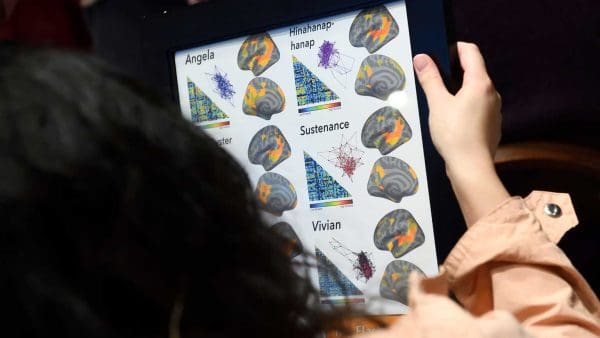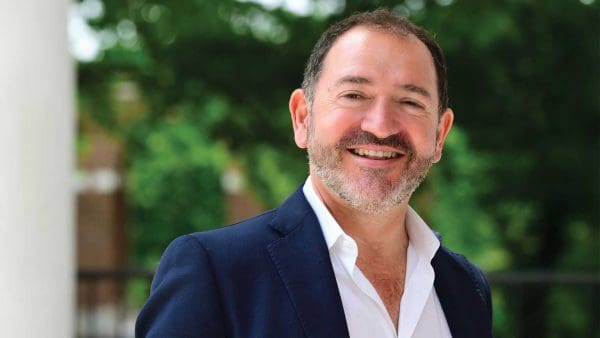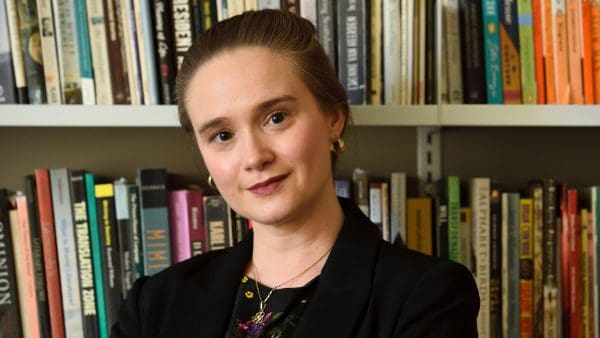Stephen Dixon, professor emeritus

Stephen Dixon, a prolific powerhouse of an author and retired professor in The Writing Seminars, died in November 2019. He was 83.
Known for developing very human characters while experimenting with various forms of storytelling, Dixon wrote 17 novels and more than 500 short stories, several of which were adapted into film. A popular teacher, he was generous with his time and his feedback, influencing countless successful writers during his 26 years on the faculty. His critiques were thoughtful and extensive, rooted in his belief that every piece had groundbreaking potential.
Dixon was the winner of four O. Henry Awards for fiction, two fellowships from the National Endowment for the Arts, two Pushcart Prizes, the American Academy Institute of Arts and Letters Prize for Fiction, and a Guggenheim Fellowship. He was twice a National Book Award finalist and was also a finalist for the PEN/Faulkner Award for Fiction.
He earned a bachelor’s degree in 1958 from City College of New York in international relations, and then took a job as a radio reporter in Washington, D.C., where he began writing fiction on a whim. He went on to work as a schoolteacher, artist’s model, cabdriver, salesclerk, and bartender, among other jobs, continuing to publish stories and, in 1976, his first novel. In 1980, Writing Seminars chair John Irwin hired Dixon as assistant professor. He was named professor in 1989 and retired from the position in 2007.
John Irwin, professor emeritus

John Irwin, a celebrated poet, critic, teacher, and editor who spent more than four decades at Johns Hopkins, died in December 2019. He was 79.
Decker Professor in the Humanities emeritus, Irwin was the author of several works of literary criticism and three volumes of poetry, sometimes under the pseudonym John Bricuth. He was editor of The Johns Hopkins Review from its rebirth in 2008 until 2015 and chair of the Writing Seminars for nearly 20 years. He retired from teaching in 2016.
Irwin earned a bachelor’s degree in English from the University of St. Thomas in Houston, Texas, in 1962, and went on to earn a master’s degree and PhD, also in English, from Rice University. He arrived at Johns Hopkins as assistant professor of English in 1970, leaving in 1974 to become editor of The Georgia Review at the University of Georgia. He returned to Hopkins in 1977 to become professor and chair of The Writing Seminars, and accepted a joint appointment in the English Department and an endowed chair, the Decker Professorship in the Humanities, in 1984.
He was elected a fellow of the American Academy of Arts and Sciences, and received the Helen C. Smith Memorial Award from the Texas Institute of Letters for the best book of poetry published by a Texas native or resident; the Christian Gauss Prize from Phi Beta Kappa for the best book in the humanities; the Scaglione Prize from the Modern Language Association of America for the best book in comparative literary studies; a Guggenheim Fellowship; and a Danforth Fellowship.
Yung Keun Lee ’56, professor emeritus

Yung Keun Lee, a professor emeritus in the Department of Physics and Astronomy, died in September 2019. He was 90.
A specialist in experimental nuclear physics, Lee was a member of the department from 1964 until he retired in 2004. Widely known for his innovations in instrumentation and technique, Lee developed, among other instruments, the Compton polarimeter for the identification of nuclear energy levels, which was used successfully in a series of atom-smasher measurements of medium-mass isotopes.
Described by his colleagues as courteous and gentlemanly, Lee was fluent in five languages, played golf, and enjoyed traveling and working on home projects.
Lee was born in Seoul, Korea. He emigrated to the U.S. when he received a scholarship to attend Johns Hopkins, graduating Phi Beta Kappa in 1956. He earned a master’s degree in physics from the University of Chicago in 1957 and a PhD from Columbia in 1961.
Lee returned to Hopkins in 1964 as assistant professor, became associate professor in 1967, and was named professor in 1971. He held visiting positions at Los Alamos National Laboratory in 1971 and the Institut des Sciences Nucleaires in Grenoble, France, in 1975. He served as a consultant in nuclear disarmament projects to the Idaho National Engineering Laboratory from 1988 to 1990 and collaborated with the Relativistic Heavy Ion Collider at Brookhaven National Laboratory beginning in 1998.
James Taylor, professor

James Taylor, Ralph S. O’Connor Professor of Biology and Professor of Computer Science, died in April 2020. He was 40.
A trailblazer in computational biology and genomics research, Taylor made an impact as a scientist, teacher, and colleague, with appointments in the Krieger School as well as the Whiting School of Engineering. He helped develop the Galaxy platform for data analysis and worked with members of his lab to extend the platform to make large-scale computational analysis more accessible and reproducible. His research focused on understanding genomic and epigenomic regulation of gene transcription through integrated analysis, with the goal of achieving a complete understanding of the structure and function of genomes. He also developed a strategy to support the health of the Chesapeake Bay by detecting microorganisms in the Baltimore Harbor and monitoring their levels continuously using newly developed, portable, and rapid DNA sequencing technologies.
Vince Hilser, chair of the Biology Department, described Taylor as a bedrock of the department. Taylor helped other faculty members uncover new insights by revealing similarities between the proteins they were studying and those in other organisms.
“He came in 2014, and it was transformational,” Hilser says. “He was this catalyst for change, with a huge positive impact.”
Taylor earned his BS in computer science from the University of Vermont in 2000 and his PhD in computer science in 2006 from Penn State University, where he was involved in several vertebrate genome projects and the ENCODE project. Before arriving at Johns Hopkins, he was an associate professor in the departments of biology and mathematics and computer science at Emory University from 2008 until 2013.
He is survived by his wife, Meredith Greif, assistant professor in the Department of Sociology.




